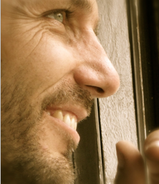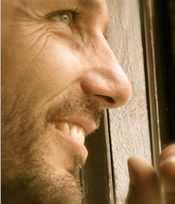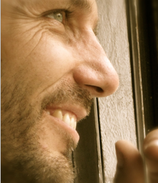 Is trust important to you? If so, who exactly can you trust? Can you ever trust anyone else's advice 100%? Can you even trust your own thoughts totally? When we examine our experiences, it turns out that there is only one voice we can trust totally to give us good advice.... Take a moment to think back through your life. Have you ever noticed that even your closest friends can give you bad advice? Or that your family members, who you would love to be able to trust implicitly, have sometimes given advice which in hindsight was not in your best interest. In most cases this 'bad' advice was given with the best intentions. Other people often 'think' they know what is best for us when in reality they do not. So blaming them for the poor advice is unfair, especially when ultimately we took the decision to listen to it. It is the same with our own thoughts. Our thinking mind (or ego as it is often referred to) is constantly 'advising' us what to do. You will probably hear these thoughts inside your head throughout your day. 'I should do this', 'I should be more like that', I mustn't let them down', 'I need to do this', 'I am a bad person if I don't do that' etc. Again take a moment to look back through your life and see if you can remember the times when you gave yourself bad advice. Have you ever woken up the next morning and thought 'What on earth was I thinking!'? Have you ever made a bad investment which at the time you thought was a good one? Have you ever thought that what you are about to say is funny, only to have your words received by shock, anger or disappointment? Alternatively you may have noticed how your thinking ego can tell you little fibs. 'Just one drink won't hurt' or 'I can have one cigarette and then stop'. In hindsight we can see that believing our thoughts without question is not always a healthy practice. The truth is that whilst the human ego may have plenty of good ideas, it also has its fair share of bad ones too. The endless stream of thinking passing through our minds can lead us to do great things but is also responsible for us doing some fairly stupid, mindless things too. So given that we can't totally trust anyone else to give us good advice and we can't even trust our own thinking egos, who can we turn to? Fortunately there is one voice that is totally trustworthy. One voice that is incapable of lying or making a poor judgement. That voice is the voice of bodily sensations. Sensations are the feelings that we get from our bodies. The tightness in the chest when we feel stressed, the feeling of joy when we do something kind, the feeling of hunger, pain or tiredness. These are all sensations. And the great news is that they never lie! Our bodies always provide the perfect response to whatever is happening for them in the moment. If we eat something sweet we receive the sensation of sweetness via our taste buds. If we eat too much sweet food, our stomachs send sensations that are warning us of the harm that overeating this type of food is doing to our digestive and other organs. The big question is then, do we listen to the right voice at the right time? Do we stop eating the cakes on Christmas day because we begin to feel a bit bloated or do we listen to the ego telling us 'Oh go on, its Christmas!'? This is the main message of any training in Mindfulness. We are mindful when we listen not only to the voice in our heads but also to the voice in our bodies. These sensations that we can feel throughout our day are the best guide to how to live a happy, peaceful and contented life. So how do we tune into them? Start by practicing a bit of mindfulness every day. A ten minute sitting at the beginning of the day is enough to start big changes in your life. If you take this time then not only will you benefit directly from tuning into your sensations then but for the rest of the day you may also find that occasionally you remember to tune into your bodily sensations for a few seconds at a time. This increased awareness of what is healthy for your body will help you to know which thoughts to believe and which thoughts to disbelieve. If a thought causes you pain, stress, tension, shortness of breath or increased heart rate then the thought is more often than not untrue. It is time to trust your body and question the thought. Here is a simple ten minute mindfulness technique that you can practice wherever and whenever you like. Mindfulness Meditation Technique: Breath Awareness Set a timer for 10 minutes. Sit with your back straight, neck long and your eyes closed. Breathe normally and smile. Bring your awareness to your breath and observe the sensations that arise in your nostrils as you breathe in and out. Try to consciously feel the touch of the breath in the nostrils as you inhale and exhale. Do not attempt to change your breathing but if your breathing naturally wants to change in any way then allow it to. If you cannot feel any sensations in the nostrils as you breathe then deepen the breathing slightly until you can feel some. Observe the sensations of breathing in the nostrils for a short while and then move the awareness to the abdomen and observe the sensations of breathing which arise in your abdomen. After observing a few breaths in the abdomen, move your awareness to the diaphragm for a few breaths, and continue like this to the chest, the shoulders, the upper back, lower back and hips. Once you have completed the circuit, start again from the nostrils. You may be aware of thoughts or other distractions coming into your consciousness. Keep moving your awareness away from thinking or distractions and focus on the breath. Every time that you notice that you have started to think and forgotten to observe your breathing, return your attention to the part of the body you were last working on. Do not stop this meditation until the timer rings. Then bow your head and slowly open the eyes. Smile. For more insights into mindfulness, meditation and the benefits of self-enquiry please visit www.positivemeditation.com. Please 'like' www.facebook.com/positivemeditation if you would like to receive more mindfulness techniques like the one above.  I wanted to share some feedback from a recent client which illustrates the benefits that mindfulness and self-enquiry can bring to our lives... 1. What are you overall thoughts on the Positive Meditation techniques and the way they are taught? Although I booked the course myself with no pressure from anybody else I was still sceptical as I have lived my whole life with negative emotions at the forefront of all of my thinking. I wanted the changes but thought that maybe I was beyond repair and would end up stressing you out.....little did I know. After the first session I had to book up the next 3 sessions straight away as I had made a giant step towards believing that life does not have to be horrible, pressured and full of anxious negative thoughts. Once I could see that I had a choice on how to view topics, situations, emotions, fears, anxieties and the world around me, I felt empowered and actually looked forward to experiencing the things that used to send me into a negative place, so that I could practice changing the way I feel about them, (I am still practising, and probably will be for many years to come, or maybe the rest of my life). I still get an adrenaline rush when something 'bad' occurs (rainy days, neighbours dog etc), but now I question myself and reassure myself that I can be happy and positive (and keep smiling) throughout. The meditation time is a peaceful time for me to practice Dharma meditation (as that works for me), it is relaxing and refreshing and a great chance to control my thoughts, not banish them. 2. What benefits has Positive Meditation brought to your life? I feel much more in control, in many ways by letting myself be out of control. I always felt like I had to know the answer, be responsible or just take charge. Now I enjoy looking at situations thinking, for instance, 'if the car breaks down and I don't know how to fix it, I am not a failure, I am allowed not to know this because I am not a mechanic'. I feel more powerful by letting go of power and realising that I am allowed not to know things, I will make mistakes, I am not perfect, and the person giving me permission for this release is myself (through the tools of Mindfulness Techniques and turnarounds, with the control practice of Meditation). I was on holiday last week in Weymouth with my wife and we were shopping in a local market, my wife knows I hate shopping and after about 15 minutes of me not saying anything (not ignoring anybody, just not speaking), my wife said "Oh come on lets go, I can see you've had enough!", to which I replied, "I started to feel like I had had enough but now I am quietly working through it, and I am concentrating on being with family, in the sun and not being in work, so I am actually feeling quite good and relaxed". We shopped for another hour or so and I really didn't feel down or concentrate on being bored. The experience left me feeling good, not only because I had been happy all day, but because I knew that only 3 weeks before my wife would have been absolutely correct and I could have ruined that day for myself and her by letting a long held hatred of 'shopping' ruin a perfectly good day. I questioned myself, looked at the turn rounds and decided that 'Shopping should be enjoyable' actually translated into 'I should be enjoyable' (for myself). These steps are really encouraging and people around me have noticed a difference, prompting a quote from my Dad of "Have you been drinking?", as I was chilled out and smiling (I had not touched a drop by the way).... I have been so impressed with the changes I have experienced and find it heartening that people that don't know I have been to see you have also commented on my 'more relaxed' attitude. Paul Wilson. Bristol 2012  When we learn to meditate, what we are essentially learning is how to be kind to ourselves. By taking time to come out of the attachments of the thinking mind (the ego) and to be still, to be present with the body, we are allowing ourselves to listen to the most caring part of our being. We may think that our thoughts care about us but in reality is that true? Have you ever had a thought which in hindsight you realised was negative or harmful to your being? If so then you will be able to see that your thoughts do not always serve your best interest. Your body however cannot lie. It can only respond. And it responds perfectly every time. If you believe a stressful thought then your body will react accordingly and you will begin to feel the sensations of stress in your body. If you believe a peaceful, liberating thought then your body will enter a state of calm and you will feel your natural state of joy. So we are able to bring compassion into this world simply by questioning the stressful thoughts and seeing them to be false and understanding them to be harmful to us. The moment we do this and we replace the stressful thought with a peaceful thought we begin to feel much much better. We have made one person on this planet suffer less. We have been compassionate. In fact, there is only one person that we can heal. And that is ourselves. Once we start being kinder to ourselves then we cannot help but be kinder to others. And through that kindness we invite others to heal themselves. Compassion and kindness are catching. They are viral. And they always start with us. Love |
Blog AuthorMark Dunn lives in Bristol where he teaches Positive Meditation and Mindfulness skills to the wonderful people that live in that great city. Archives
May 2018
Categories
All
|
| Positive Meditation: Happiness Skills for Life |
|
 RSS Feed
RSS Feed
